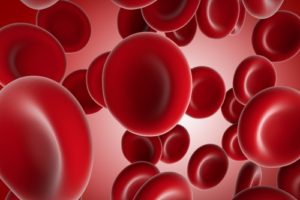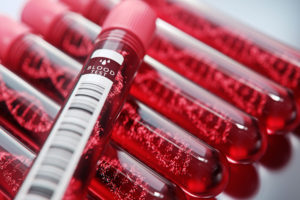Antiphospholipid Antibody Syndrome (APS)
Bay Biosciences provides high quality, clinical grade bio-specimens, cryogenically preserved sera (serum), plasma and peripheral blood mononuclear cells (PBMC) biofluid samples from unique patients diagnosed with Antiphospholipid Antibody Syndrome (APS).
The sera (serum), plasma and PBMC biofluid specimens are processed from patient’s peripheral whole-blood using customized collection and processing protocols. The Antiphospholipid Antibody Syndrome (APS) bio-specimens are collected from unique patients diagnosed with Antiphospholipid Antibody Syndrome (APS) disease and are provided to a valued pharmaceutical customer for research, diagnostics, discovery and drug development.
Detailed clinical data, anti-phospholipid antibodies positive sera (serum), elevated biomarker levels, genetic and metabolic information, histopathological findings, annotations associated with antiphospholipid antibody syndrome (APS) patient’s specimens is provided to a valued customer for research, development and drug discovery. The Antiphospholipid Antibody Syndrome (APS) sera (serum), plasma and peripheral blood mononuclear cells (PBMC) biofluid are processed from patients peripheral whole-blood using customized collection and processing protocols.

Antiphospholipid Antibody Syndrome (APS) Overview
Antiphospholipid antibody syndrome (APS) is an autoimmune disorder. Autoimmune disorders occur when the body’s immune system makes antibodies that attack and damage tissues or cells. Antibodies are a type of protein. They usually help defend the body against infections. In APS, however, the body makes antibodies that mistakenly attack phospholipids, which is a type of fat. Phospholipids are found in all living cells and cell membranes, including blood cells and the lining of blood vessels.
Antiphospholipid antibodies are present in 15-20% of all cases of deep vein thrombosis (blood clots) and in one-third of new strokes occurring in people under the age of 50.
When antibodies attack phospholipids, cells are damaged. This damage causes blood clots to form in the body’s arteries and veins. These are the vessels that carry blood to the heart and body. Usually, blood clotting is a normal bodily process. Blood clots help seal small cuts or breaks on blood vessel walls. This prevents you from losing too much blood. In APS, however, too much blood clotting can block blood flow and damage the body’s organs.
Some people have APS antibodies, but don’t ever have signs or symptoms of the disorder. Having APS antibodies doesn’t mean that you have antiphospholipid antibody syndrome (APS). To be diagnosed with APS, you must have APS antibodies and a history of health problems related to the disorder. APS can lead to many health problems, such as stroke, heart attack, kidney damage, deep vein thrombosis and pulmonary embolism. APS also can cause pregnancy-related problems, such as multiple miscarriages, a miscarriage late in pregnancy, or a premature birth due to eclampsia (high blood pressure in pregnancy). Eclampsia, which follows preeclampsia, is a serious condition that causes seizures in pregnant women. Very rarely, some patients who have APS develop many blood clots within weeks or months. This condition is called catastrophic antiphospholipid syndrome (CAPS).
Patients who have antiphospholipid antibody syndrome (APS) also are at higher risk for thrombocytopenia. This is a condition in which the blood has a lower than normal number of blood cell fragments called platelets. Antibodies destroy the platelets, or they’re used up during the clotting process. Mild to serious bleeding can occur with thrombocytopenia. Antiphospholipid antibody syndrome (APS) can be fatal. Death may occur as a result of large blood clots or blood clots in the heart, lungs, or brain. Currently there is not a cure for APS.
Causes of Antiphospholipid Antibody Syndrome (APS)
Exact cause of why patients develop antiphospholipid antibody syndrome (APS) and what causes the immune system to produce abnormal antibodies is unknown. The production of these autoantibodies are likely triggered by other autoimmune conditions, genetic, hormonal and environmental factors such as an infection occurring in an individual with a genetic background that makes him or her more susceptible to the disease. APS is likely caused by a combination of gene mutations (making one more susceptible to APS) and an environmental exposure (such as to a virus).
Antiphospholipid antibody syndrome (APS) an autoimmune condition, which means that the immune system, which usually protects the body from infection and illness, attacks healthy tissue by mistake. In APS, the immune system produces abnormal antibodies called antiphospholipid antibodies. These target proteins attached to fat molecules (phospholipids), which makes the blood more likely to clot.
Signs and Symptoms of Antiphospholipid Antibody Syndrome (APS)
- High Blood pressure
- Deep vein thrombosis (DVT)
- Stroke or a transient ischemic attack (TIA)
- Heart attack
- pulmonary embolism (blockage of blood vessels in the lungs)
Patients with antiphospholipid syndrome (APS) may also experience any of the following symptoms:
Pregnancy Problems
Women with antiphospholipid syndrome (APS) have a much higher risk of developing complications during pregnancy, particularly if it’s not treated.
Possible complications include:
- Three or more recurrent early miscarriages, usually during the first 10 weeks of pregnancy
- One or more later miscarriages, usually after week 10 of pregnancy
- Premature birth, usually at or before week 34 of pregnancy, which may be caused by pre-eclampsia (where a woman develops high blood pressure during pregnancy).
Livedo Reticularis
Livedo reticularis is a skin condition caused by small blood clots that develop inside the blood vessels of the skin. It causes the skin to take on a blotchy red or blue appearance. Some patients also develop ulcers (sores) and nodules (bumps).
Following are some of the APS symptoms which are often more severe in the cold weather:
Superficial Thrombophlebitis
Superficial thrombophlebitis is inflammation of the veins just under your skin, usually in your leg. The symptoms are similar to DVT, but aren’t usually as severe.
The symptoms of superficial thrombophlebitis include:
- Swelling
- Redness and tenderness along the affected vein
- High temperature of 100.4 F(38C) or above
The symptoms usually resolve within 2 to 6 weeks.
Diagnostics Antiphospholipid Antibody Syndrome (APS)
- Hematologist (specialist in conditions affecting the blood)
- Rheumatologist (specialist in conditions affecting the immune system)
Specific Blood Tests
To diagnose antiphospholipid antibody syndrome (APS), the blood needs to be tested for the abnormal antiphospholipid antibodies that increase the risk of blood clots. This requires a blood test specifically designed to look for these antibodies. A diagnosis of APS can only be made after two abnormal blood test results, with at least a 12-week gap between them. This is because harmless antiphospholipid antibodies can sometimes develop in the body for short periods of time. Usually, this is the result of an infection or a side effect of medication, such as antibiotics. If antiphospholipid antibodies are identified during the first blood test, another test will be needed at a later date to confirm whether the abnormal antibodies are still present.

Bay Biosciences is a global leader in providing researchers with high quality, clinical grade, fully characterized human tissue samples, bio-specimens and human bio-fluid collections from cancer (tumor) tissue, cancer serum, cancer plasma cancer PBMC and human tissue samples from most other therapeutic areas and diseases.
Bay Biosciences maintains and manages it’s own bio-repository, human tissue bank (biobank) consisting of thousands of diseased samples (specimens) and from normal healthy donors available in all formats and types. Our biobank procures and stores fully consented, deidentified and institutional review boards (IRB) approved human tissue samples and matched controls.
All our human human tissue collections, human specimens and human bio-fluids are provided with detailed samples associated patient’s clinical data. This critical patient’s clinical data includes information relating to their past and current disease, treatment history, lifestyle choices, biomarkers and genetic information. Patient’s data is extremely valuable for researchers and is used to help identify new effective treatments (drug discovery & development) in oncology, other therapeutic areas and diseases. This clinical information is critical to demonstrate their impact, monitor the safety of medicines, testing & diagnostics, and generate new knowledge about the causes of disease and illness.
Bay Biosciences banks wide variety of human tissue samples and biological samples including cryogenically preserved -80°C, fresh, fresh frozen tissue samples, tumor tissue samples, FFPE’s, tissue slides, with matching human bio-fluids, whole blood and blood derived products such as serum, plasma and PBMC’s.
Bay Biosciences is a global leader in collecting and providing human tissue samples according to the researchers specified requirements and customized, tailor made collection protocols. Please contact us anytime to discuss your special research projects and customized human tissue sample requirements.
Bay Biosciences provides human tissue samples (human specimens) from diseased and normal healthy donors; including peripheral whole-blood, amniotic fluid, bronchoalveolar lavage fluid (BAL), sputum, pleural effusion, cerebrospinal fluid (CSF), serum (sera), plasma, peripheral blood mononuclear cells (PBMC’s), saliva, Buffy coat, urine, stool samples, aqueous humor, vitreous humor, kidney stones, renal calculi, nephrolithiasis, urolithiasis and other bodily fluids from most diseases including cancer. We can also procure most human bio-specimens and can do special collections and requests of human samples that are difficult to find. All our human tissue samples are procured through IRB approved clinical protocols and procedures.
In addition to the standard processing protocols Bay Biosciences can also provide human plasma, serum, PBMC bio-fluid samples using custom processing protocols, you can buy donor specific sample collections in higher volumes and specified sample aliquoting from us. Bay Biosciences also provides human samples from normal healthy donors, volunteers, for controls and clinical research, contact us Now.
日本のお客様は、ベイバイオサイエンスジャパンBay Biosciences Japanまたはhttp://baybiosciences-jp.com/contact/までご連絡ください。


